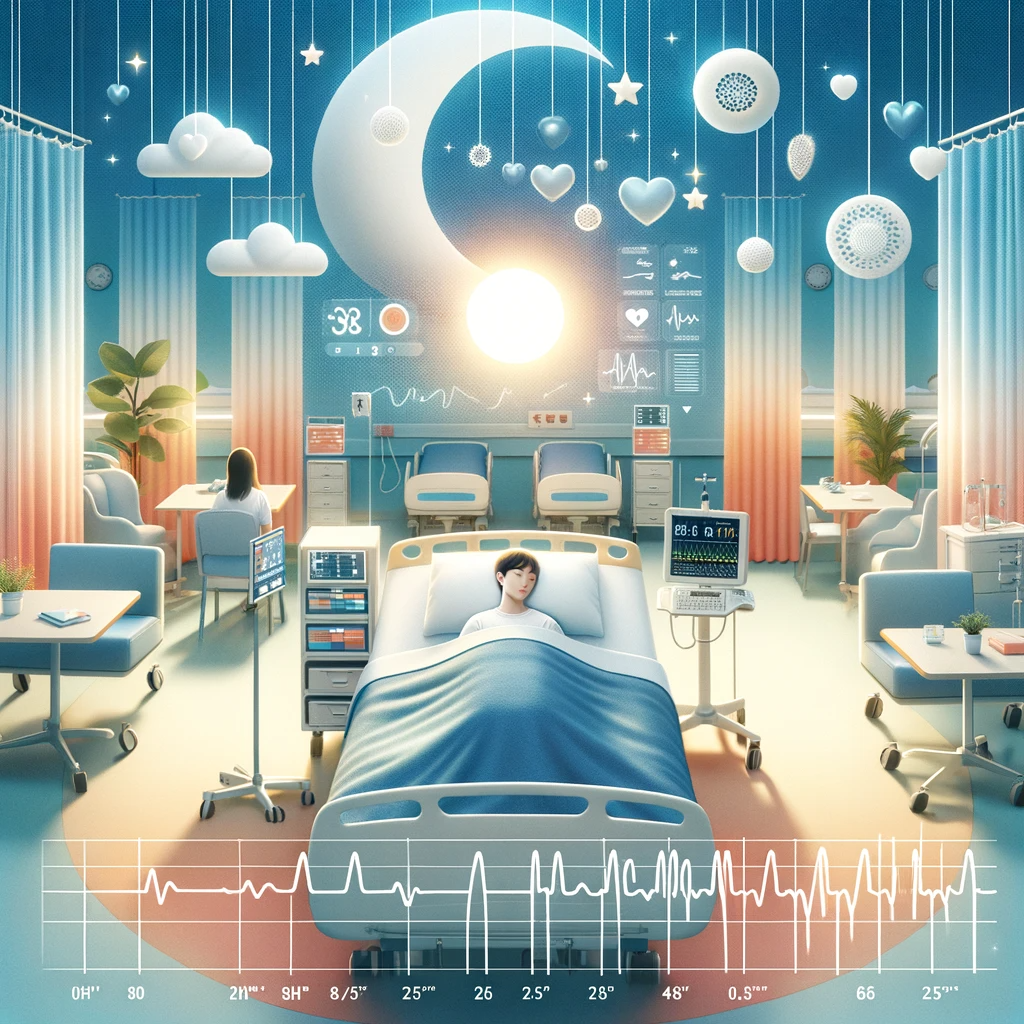
Amidst the hustle and bustle of a busy hospital ward, it’s not just the alarms that can disrupt a patient’s well-being. Sleep, a fundamental pillar of health, often gets compromised in the clinical setting. Despite the significance of rest in patient recovery, sleep disturbances remain prevalent, with profound consequences on overall health outcomes.
The relationship between sleep and recovery is undeniable. As reported in a comprehensive review titled “Sleep Well and Recover Faster with Less Pain—A Narrative Review on Sleep in the Perioperative Period,” adequate rest is crucial for pain management, psychological wellness, and physical healing. But what really happens when a patient’s sleep gets disrupted in a hospital?
According to the research, “A prospective analysis of sleep deprivation and disturbance in surgical patients,” patients who experience sleep disturbances have a higher likelihood of complications. These range from increased pain, stress response, and even depletion of vital glycogen stores. Such sleep interruptions are more than mere inconveniences; they directly impede the body’s natural recovery process.
Moreover, sleep deprivation, especially in critical illnesses, isn’t just about physical recovery. The article “Sleep Deprivation in Critical Illness: Its Role in Physical and Psychological Recovery” underscores the significance of sleep in mental well-being, where deprivation can lead to heightened anxiety and even delirium.
Furthermore, a comprehensive piece, “Sleep in Hospitalised Older Adults,” by Aurora and Stewart, brings attention to how the elderly population, in particular, is vulnerable. Sleep disturbances in this group are associated with severe outcomes, including cardio-metabolic issues and an amplified risk of delirium.
The solution? Beyond addressing noise disturbances, such as medical device alarms, it’s vital to create an environment conducive to rest. This can involve adjusting lighting, promoting a regular sleep routine, and ensuring medical interventions do not unnecessarily disrupt sleep.
Understanding the gravity of sleep deprivation and its implications on patient recovery is vitally important. By prioritising rest, we can pave the way for swifter, more comprehensive patient recoveries.
To understand more about the BEAMS can reduce sleep disturbance in hospital wards, please feel free to connect with our team.